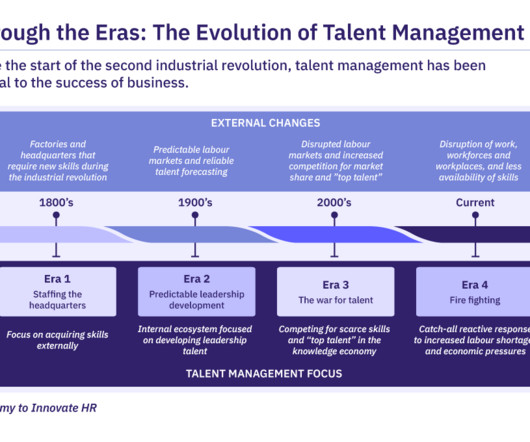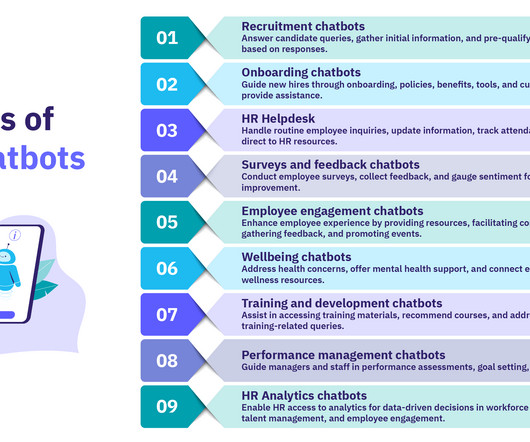Develop Your Team From A Distance
Pinsight
JUNE 16, 2020
It might be skills, or knowledge-based, or both. The next trend that will follow will be on talent management, as it is vital to development; spanning and subsuming activities such as workforce planning, succession planning, talent acquisition, onboarding and engagement, development, and performance management.















Let's personalize your content